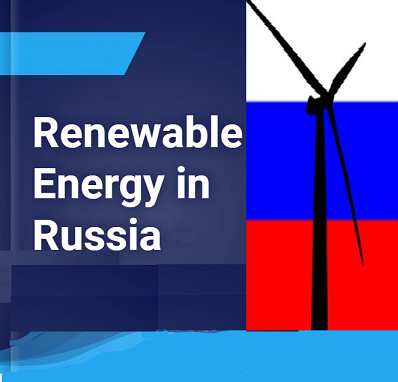
Russia will double the capacity of renewable energy generation by 2050.
By 2050, demand for hydrocarbons is expected to decrease, but new low-carbon energy markets are already opening up. Ilya Torosov, First Deputy Minister of Economic Development of Russia, said this at COP 28 in Dubai.
According to him, Russia focuses on the development of new highly efficient industries, products with high added value. The export sector for hydrogen production is developing – by 2030, Russia plans to occupy a fifth of the global market (within the framework of the strategic initiative “Clean Energy”, approved by Russian Prime Minister Mikhail Mishustin).
“The Russian economy, including the energy sector, is already largely using low-carbon sources. If we look at the energy balance for 2022, then renewable energy and hydroelectric power plants in the structure of Russian energy generation occupy a larger percentage than in countries such as the USA, China, and India,” said Torosov. At the same time, the government plans to increase the share of green energy by 2030. up to 39.7% (now 37.8%), and half of the increase will be provided by doubling green renewable energy generation from 6 GW to 12 GW, which in terms of electricity generation is comparable to the consumption of an entire subject of the Russian Federation.
Torosov also noted that dozens of projects have already been launched in the country, and the state-guaranteed return on investment will amount to 175 billion rubles by 2030.
The state provides a number of benefits for the development of renewable energy sources, and mechanisms are in place to increase the attractiveness of such projects. For example, the installation of renewable energy sources can be considered a climate project, the results of which can release carbon units.
In the future, they can be sold or credited to reducing their own carbon footprint. Torosov noted that “at the moment, 8 climate projects have been registered in the register of carbon units. 87.5 thousand units have already been released, 3.7 thousand have been sold on the market, and about 52 million more carbon units are planned to be released into circulation in the near future.
In addition, a taxonomy of “green” projects has been launched in Russia. In 2023, it was expanded to include projects in the field of hydrogen production, the construction of energy–efficient buildings and a number of others.
“Work on decarbonization, ensuring energy transfer is not possible without scientific support. To do this, the Russian Climate Monitoring System (VIP GZ) was launched last year. These are more than 40 scientific organizations across the country, world-renowned scientists,” said Torosov.
According to him, economic modeling based on the data obtained will allow selecting the most effective decarbonization and adaptation measures to climate change in terms of costs and emissions reduction. “We see a wide range of possibilities for using the system. For the state, this means access to the latest scientific data – we speak the same language with the world, confirmation of national approaches to decarbonization of the economy by expert assessments and data, and the use of a system for adaptation planning. Businesses will be able to use the system to assess climate risks when forming corporate strategic documents (an element of investment attractiveness, efficiency improvement) and to reduce the level of uncertainty in emissions at the company or project level,” said Torosov.
In turn, speaking at the session, Senior Vice President for ESG of Sberbank1 Tatyana Zavyalova noted that “Sberbank welcomes the implementation of the state project on climate monitoring and participates in its implementation. Today, the issue of effective climate policy is increasingly shifting to the economic plane. For example, according to our preliminary forecasts, in Russia, the damage from climate change from 2023 to 2027 may amount to an average of 580 billion rubles annually.
Therefore, the Bank has also developed its own AI models for predicting climate risk events and assessing their economic consequences, which will also be effective as part of the implementation of the second stage of the national climate change adaptation plan. We hope that our expertise and high-tech solutions, including those based on artificial intelligence, will contribute to Russia’s fulfillment of the goals of the national climate agenda,” she said.
Source: Ministry of Economic Development, Russian Federation, December 11, 2023. https://embassylife.ru/en/post/40617
- Sberbank is a Russian majority state-owned banking and financial services company headquartered in Moscow. ↩︎